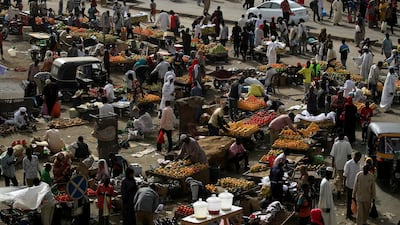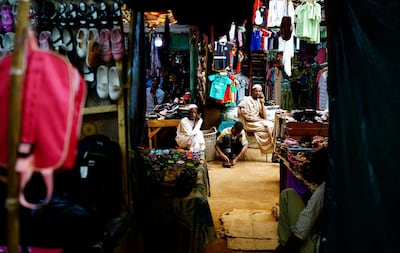Sudan floated its embattled currency on Sunday, devaluing the pound by about 85 per cent to attract more foreign currency through official channels. The move aimed to close the gap between official and parallel market rates.
The Central Bank of Sudan said the dollar will be officially traded at 375 pounds per US dollar under a policy designed to “unify” the exchange rates.
It described the new rate as “indicative,” instructing commercial banks and exchange bureaus to sell and buy dollars within 5 per cent of the new rate, which will be set daily. The profit margin for trading dollars was set at 0.5 per cent, it said.
The official exchange rate on the eve of the valuation on Sunday stood at 55 Sudanese pounds per US dollar, but the currency had been unofficially trading at about 375 to 400 to the dollar. The situation means that dollars needed to import basic consumer items remain outside the formal banking system.
The move is part of reforms undertaken by the transitional government of Prime Minister Abdalla Hamdok to overhaul the country’s battered economy after decades of neglect.
The government has already lifted state subsidies on fuel and signed a peace deal with some rebel groups last October, in the hope of reducing defence spending.
But Sudanese analysts said the flotation was unlikely to bring the government the results it is looking for, warning that instead, it could send inflation to new highs.
Annual inflation was already running to more than 300 per cent in January, compounding the country’s economic woe.
“The state of the economy is very fragile and the flotation is fraught with risks,” said one analyst, Abdul Qassim Ibrahim.
He said Sudan had few resources at hand to defend the pound against the dollar, and low productivity in almost all sectors.
“The flotation of the pound, while allowing commercial banks to trade in the dollar, will cause a surge in demand for foreign currencies that the government cannot satisfy,” he said.
Another analyst, Hamza Awadallah, echoed the sentiment.
“Where will the government find foreign currency in amounts sufficient to meet demand defend the pound?” he said. “It has two options, both of which are inadequate: exports and foreign loans.”
Sudan was removed from the US list of state sponsors of terrorism in December.
The move paves the way for the country to engage with the International Monetary Fund and other agencies to provide much-needed access to external funding. But tangible results have yet to appear and Khartoum has been hit in recent weeks by demonstrations against severe bread and fuel shortages. Annual inflation soared to 304 per cent earlier this month, among the highest in the world.
Sudan’s economy had been shrinking for the two years before the start of the Covid-19 pandemic.
The IMF estimated gross domestic product last year would contract by 8.4 per cent. It is the biggest annual contraction since 2011, when the secession of South Sudan took away most of the country’s oil revenue.
The fund forecasts a gradual recovery, with growth of 0.8 per cent this year and 1.4 per cent in 2022.
Sudan is at a delicate transitional phase since the removal of long-time dictator Omar Al Bashir in April 2019. The current administration brings together military and pro-democracy groups behind the uprising against the former leader’s 29-year rule.
Two weeks ago, the prime minister reshuffled his Cabinet to include representatives of rebel groups with whom the government signed a peace deal in October.
A prominent rebel leader from the Darfur region, Jibril Ibrahim, was named as the country’s new finance minister.



